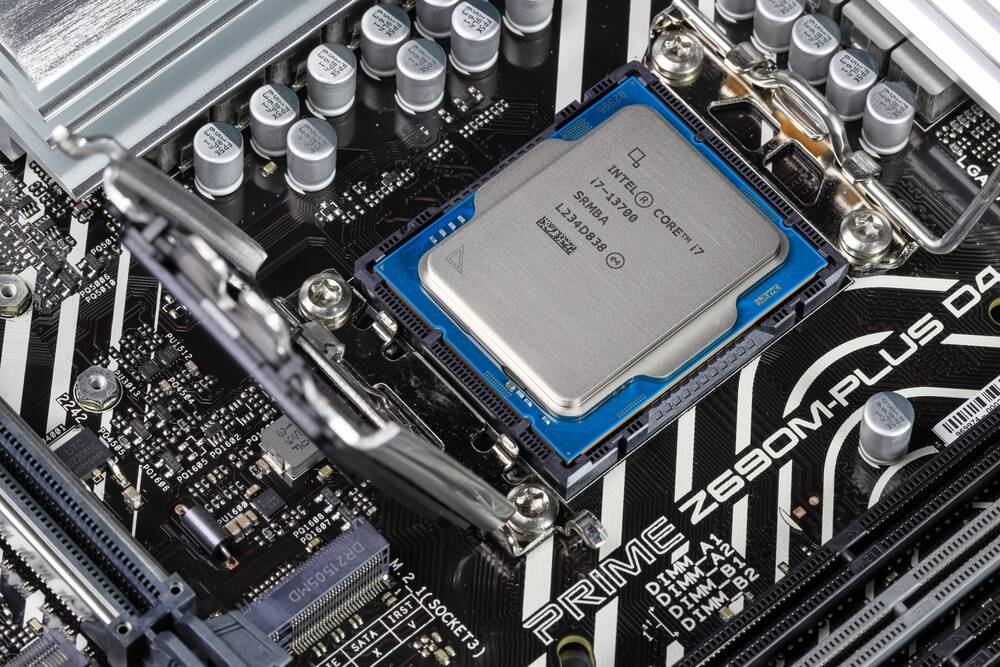Intel Sued Over Raptor Lake Voltage Instability

Intel was sued in a federal court in San Jose, California, on Tuesday, based on claims that the chipmaker's 13th and 14th generation desktop processors from 2022 and 2023 are defective.
The plaintiff, Mark Vanvalkenburgh of Orchard Park, New York, purchased an Intel Core i7-13700K from Best Buy in January 2023, according to the complaint [PDF].
"After purchasing the product, Plaintiff learned that the processor was defective, unstable, and crashing at high rates," the complaint claims. "The processor caused issues in his computer, including random screen blackouts and random computer restarts. These issues were not resolved even after he attempted to install a patch issued by Intel for its 13th Generation processors."
The potential class-action lawsuit cites various media reports and social media posts dating back to December 2022 that describe problems with Intel's 13th and 14th generation processors, known as Raptor Lake. These reports document unexplained failures and system instability, as well as a higher-than-expected rate of product returns.
"By late 2022 or early 2023, Intel knew of the defect," the complaint says. "Intel’s Products undergo pre-release and post-release testing. Through these tests, Intel became aware of the defect in the processors."
And because Intel continued making marketing claims touting the speed and performance of its products, with no mention of any defect, the complaint alleges that Intel committed fraud by omission, breached implied warranty, and violated New York General Business Law.
- Apple 'broke law' by pushing out labor-organizing dev
- Dow swaps Intel for Nvidia leaving no index free from wild AI volatility
- Intel losses hit $16.6B in Q3 and Wall Street is … loving it?
- Intel thinks it's got a final microcode fix for recalcitrant Raptor Lake processors
Intel acknowledged its chips had a problem in a July 2024 forum post. "Based on extensive analysis of Intel Core 13th/14th Gen desktop processors returned to us due to instability issues, we have determined that elevated operating voltage is causing instability issues in some 13th/14th Gen desktop processors," explained Intel communications manager Thomas Hannaford. "Our analysis of returned processors confirms that the elevated operating voltage is stemming from a microcode algorithm resulting in incorrect voltage requests to the processor."
In September, Chipzilla provided more details with the publication of a root cause analysis of the issue, which the company refers to as "Vmin Shift Instability." Vmin refers to the minimum voltage for a chip to operate properly.
"Intel has localized the Vmin Shift Instability issue to a clock tree circuit within the IA core which is particularly vulnerable to reliability aging under elevated voltage and temperature," the chipmaker said. "Intel has observed these conditions can lead to a duty cycle shift of the clocks and observed system instability."
Intel has issued three microcode patches to address the issue: 0x125 in June 2024 to adjust its Enhanced Thermal Velocity Boost (eTVB) algorithm; 0x129 in August 2024 to address high voltages requested by the processor; and 0x12B, announced in September 2024, which incorporates the previous two updates and also prevents the processor from requesting elevated voltage when idle or under light load.
The chipmaker also announced a two-year warranty extension for certain affected chips in August, and expanded the program with additional support details the following month.
Intel did not immediately respond to a request for comment. ®
From Chip War To Cloud War: The Next Frontier In Global Tech Competition
The global chip war, characterized by intense competition among nations and corporations for supremacy in semiconductor ... Read more
The High Stakes Of Tech Regulation: Security Risks And Market Dynamics
The influence of tech giants in the global economy continues to grow, raising crucial questions about how to balance sec... Read more
The Tyranny Of Instagram Interiors: Why It's Time To Break Free From Algorithm-Driven Aesthetics
Instagram has become a dominant force in shaping interior design trends, offering a seemingly endless stream of inspirat... Read more
The Data Crunch In AI: Strategies For Sustainability
Exploring solutions to the imminent exhaustion of internet data for AI training.As the artificial intelligence (AI) indu... Read more
Google Abandons Four-Year Effort To Remove Cookies From Chrome Browser
After four years of dedicated effort, Google has decided to abandon its plan to remove third-party cookies from its Chro... Read more
LinkedIn Embraces AI And Gamification To Drive User Engagement And Revenue
In an effort to tackle slowing revenue growth and enhance user engagement, LinkedIn is turning to artificial intelligenc... Read more

